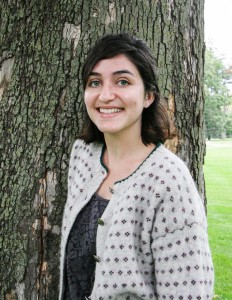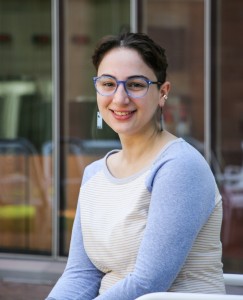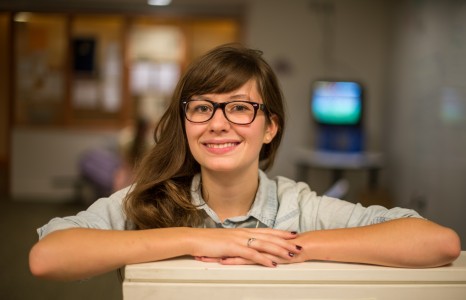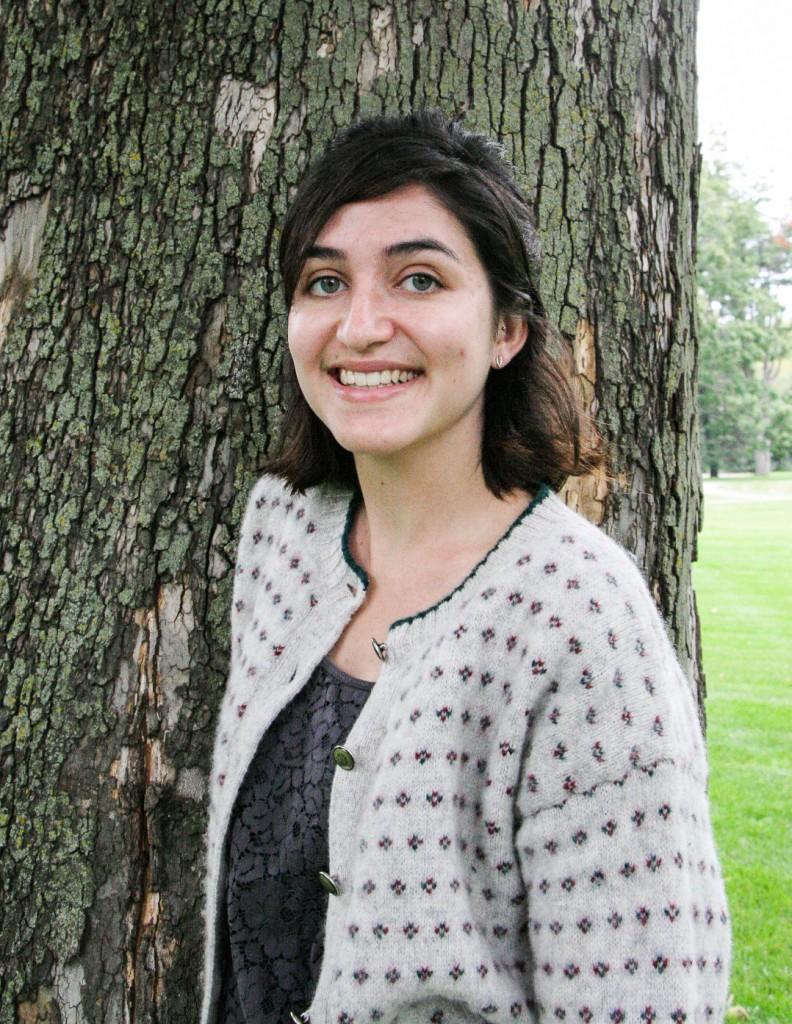This semester, several Grinnell students will have an opportunity that few undergraduate students get to experience: the chance to present and defend their work at several accredited conferences throughout the United States. Over the course of this semester, many students will be presenting papers on queer theory through film or other interdisciplinary areas.

Photo by Sydney Steinle
Three students who will be presenting at film conferences are Phoebe Mogharei ’16, Teresa Fleming ’17 and Halley Freger ’17.
The students wrote their papers for their Film Analysis course, taught by Professor Terri Geller, English. After discussion, Geller submitted their works to the board for review.
Mogharei explained the selection process. “I wrote my final paper for Professor Geller’s Intro to Film Analysis class and she got back to me and said that she had liked my paper and if I wanted I should submit it [to the conference] … She ended up submitting the three of our papers for us in abstract form.”
Though they each will be presenting in the same category, their papers cover a variety of different topics. Mogharei’s paper deals with the film “Looking for Langston”, a 1989 British black-and-white surrealist film short set in 1920s Harlem that celebrates black gay identity and want during the Harlem Renaissance. The film also focuses on the intersections of surrealism, post-modernism and new queer cinema.
In contrast, Fleming’s work is less focused on queer theory. Her paper focuses on the masochistic aesthetic in the films “Gilda” and “American Beauty.” It seeks to psychoanalyze the films through a feminist lens and open them to new interpretations.
Freger’s paper explores the use of surrealist and avant-garde film practices to expose the social construction of gender as a means of controlling sexuality, by analyzing the Brothers Quay’s stop-motion animated short “Street of Crocodiles”.
All three students expressed a general sense of nervousness and genuine excitement about their upcoming panels.

Photo by Sydney Steinle
“I’ve never been on a panel before or presented at a conference,” Freger said. “[I’m] a little nervous about it, but I’m really into what I’m presenting on, so hopefully that will help me if there are some difficult questions and things.”
Mogharei and Fleming shared similar worries for potentially being underqualified for such an event. However, the two also feel that this opportunity will prove useful for properly articulating their arguments in front of a panel of scholars.
“It’s a cool opportunity … to take something I wrote myself and present it to the academic world,” Mogharei said. “[This is an opportunity] to present my work and defend it.”
Freger and Mogharei will be presenting at the Film & History Conference in Madison, Wis., along with Sophie Donlon ’16. This conference is typically composed of academics and is usually attended, hosted and featured by graduate students and professors.
Fleming and Amanda Magyar ’17, the latter of whom had not taken a film-related course upon completing her work, will be presenting at the Literature/Film Association conference.
Notably, the fact that such a high number of Grinnell students were able to earn seats on their respective film analysis panels is not common for a college the size of Grinnell.
Many of the recipients consider their inclusion in the conference to be a stepping-stone for bigger and better things. Mogharei sees it as something she has under her belt and a necessary exposure should she choose to continue submitting her work to other panels. Fleming views it as an acquisition of experience that will not only expose her to this particular side of academia, but prepare her for graduate school.
Freger views this opportunity as a path to something bigger.
“Not to call out the College, but one of the major issues with Grinnell is the idea of isolation, and we’re definitely isolated from other institutions,” Freger said. “This is a chance to represent ourselves. … This is also an opportunity to expose myself to other fields of thought [within film analysis] and bring that back. … maybe once [students] start attending [conferences like these] students will be willing to fight for film programs or even bring a film festival to campus.”

Photo by John Brady
In addition to these students, there are also a number of other Grinnell students who will be presenting on queer theory. Their work focuses on critical theory and a more philosophical approach to the topic. These students include Carl Sessions ’15, Geo Gomez ’15 and Ian Byrd ’16.
Teresa Fleming ’17 is the Arts Editor for The S&B.





























































